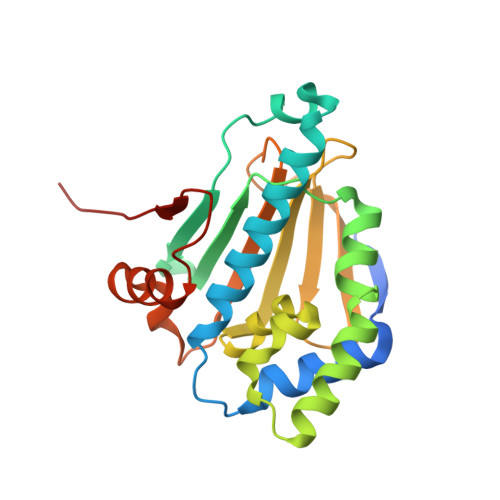Inhibition of Hsp90 with Synthetic Macrolactones: Synthesis and Structural and Biological Evaluation of Ring and Conformational Analogs of Radicicol.
Proisy, N., Sharp, S.Y., Boxall, K., Connelly, S., Roe, S.M., Prodromou, C., Slawin, A.M.Z., Pearl, L.H., Workman, P., Moody, C.J.(2006) Chem Biol 13: 1203
- PubMed: 17114002
- DOI: https://doi.org/10.1016/j.chembiol.2006.09.015
- Primary Citation of Related Structures:
2CGF, 2IWS, 2IWU, 2IWX - PubMed Abstract:
A series of benzo-macrolactones of varying ring size and conformation has been prepared by chemical synthesis and evaluated by structural and biological techniques. Thus, 12- to 16-membered lactones were obtained by concise routes, involving ring-closing metathesis as a key step. In enzyme assays, the 13-, 15-, and 16-membered analogs are good inhibitors, suggesting that they can adopt the required conformation to fit in the ATP-binding site. This was confirmed by cocrystallization of 13-, 14-, and 15-membered lactones with the N-terminal domain of yeast Hsp90, showing that they bind similarly to the "natural" 14-membered radicicol. The most active compounds in the ATPase assays also showed the greatest growth-inhibitory potency in HCT116 human colon cancer cells and the established molecular signature of Hsp90 inhibition, i.e., depletion of client proteins with upregulation of Hsp70.
- School of Chemistry, University of Nottingham, University Park, Nottingham, NG7 2RD, United Kingdom.
Organizational Affiliation:

















